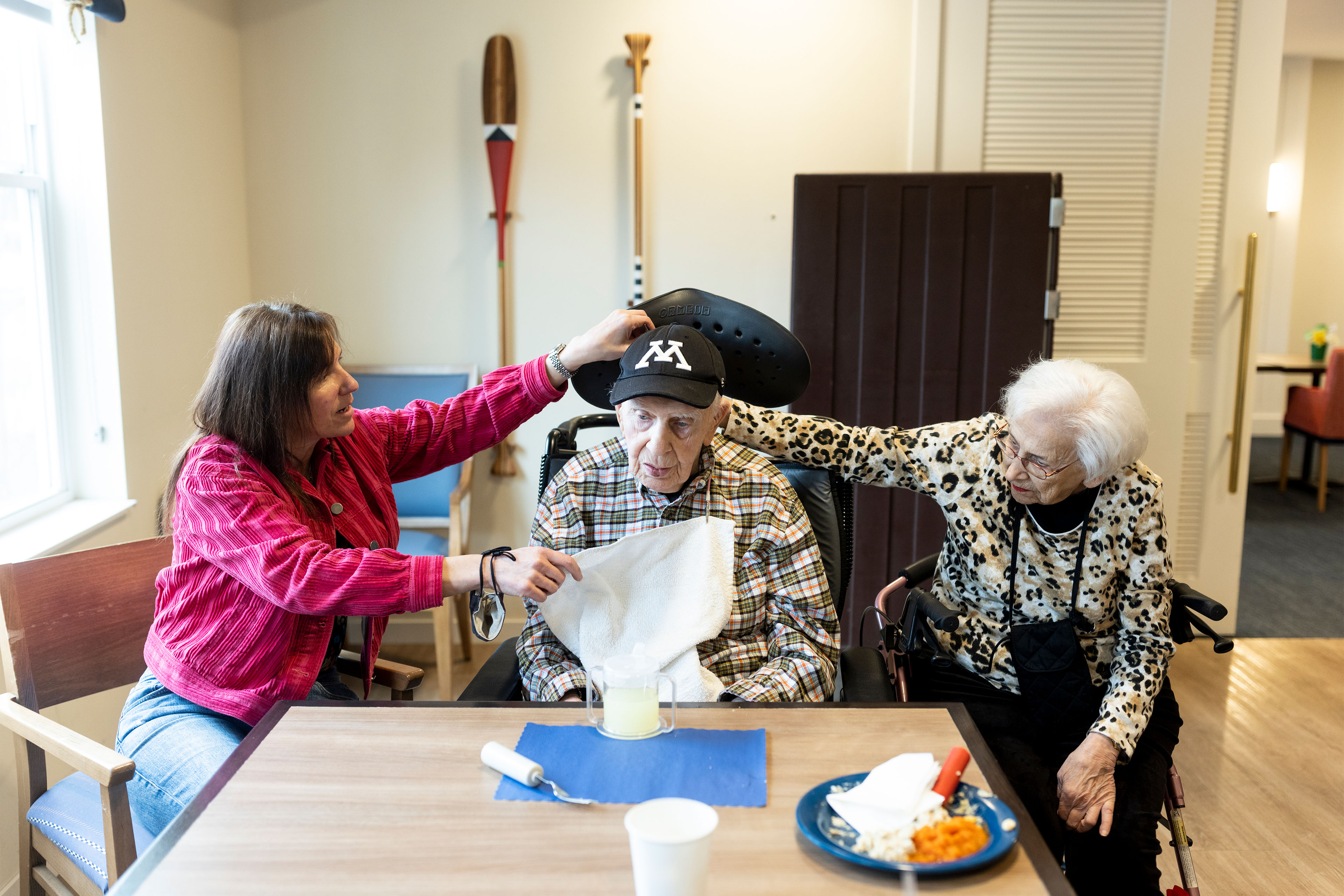Learn about innovative Memory Care therapies for cognitive well-being.
Learn about innovative Memory Care therapies for cognitive well-being.
Blog Article
The Role of Assisted Residing In Giving Specialized Look After Dementia Clients
The stipulation of specialized treatment for dementia people within assisted living facilities is increasingly identified as a crucial element of reliable mental deterioration administration. These environments are created to deal with the unique cognitive and psychological challenges encountered by people with dementia, supplying tailored assistance that promotes security and health.
Recognizing Mental Deterioration Care Demands
Understanding the care needs of people with mental deterioration is crucial for supplying effective assistance and boosting their high quality of life. Dementia is a dynamic neurological condition that affects cognitive features such as memory, reasoning, and communication. People with dementia frequently call for support with day-to-day activities, customized treatment plans, and psychological support.
Effective mental deterioration care includes identifying the distinct obstacles dealt with by each individual. This consists of comprehending the phases of dementia, which can vary from light cognitive problems to advanced stages needing detailed aid. Care needs may encompass support in handling everyday routines, medicine adherence, and keeping social communications to prevent isolation.
Additionally, sensory excitement and acquainted atmospheres can significantly enhance the well-being of individuals with dementia. Caregivers must be trained to recognize behavior adjustments and use approaches customized per individual's preferences and past experiences. Techniques such as validation therapy and memory can aid connect properly and cultivate a feeling of security.
Ultimately, efficiently resolving the treatment requirements of individuals with mental deterioration calls for a thoughtful technique, recurring training for caretakers, and a dedication to preserving dignity and regard throughout the caregiving procedure.
Benefits of Assisted Living

An additional considerable benefit is the safe and safe and secure environment these facilities give. Locals take advantage of features such as protected entryways and checked common locations, reducing the danger of straying and boosting overall security. Assisted living advertises social interaction amongst citizens, fostering a sense of community and belonging. Engaging with peers can ease sensations of seclusion, which prevail in those living with dementia.
On top of that, many nursing home offer assistance with daily activities, such as medication monitoring, showering, and dish prep work. This assistance enables locals to maintain their independence while ensuring their wellness and health are focused on. Inevitably, assisted living acts as a beneficial source, balancing care and freedom for people with mental deterioration and their households.

Specialized Programs and Tasks
(Memory Care Charlotte)Identifying the one-of-a-kind demands of people with mental deterioration, lots of assisted living centers execute specific programs and activities developed to improve cognitive function and promote total well-being. These programs often include cognitive excitement activities that engage locals in memory games, challenges, and reminiscence treatment, which urges the sharing of individual tales and previous experiences.
Additionally, art and songs therapy play significant functions in fostering creativity and emotional expression (Memory Care). Involving locals in painting, crafting, or songs sessions can provide healing advantages, aiding to lower stress and anxiety and enhance mood. Physical activities, such as gentle workouts and dancing sessions, are also vital, as they see advertise movement and physical health while encouraging social interaction among locals
Structured everyday regimens are often established to give a sense of security and predictability for people with mental deterioration. These regimens can include set up meal times, team activities, and individualized care plans that cater to private rate of interests and capacities. By developing an improving atmosphere loaded with customized activities, assisted living centers not just boost the lifestyle for dementia individuals yet also foster a sense of neighborhood and belonging.
Educated Team and Assistance
(Dementia Care Charlotte)In assisted living facilities, the visibility of qualified team is important for providing efficient assistance to individuals with mental deterioration. These professionals possess specialized expertise and skills to attend to the unique requirements of homeowners, ensuring their safety and security, comfort, and wellness. Team member get training in mental deterioration care, which consists of recognizing the progression of the illness, identifying behavioral modifications, and using effective interaction strategies.
In addition, qualified team are equipped to execute customized care plans customized to each resident's choices and capabilities. This individualized approach fosters a sense of freedom and dignity, allowing homeowners to involve in significant tasks that improve their lifestyle. The team also play a crucial role in monitoring health and wellness and health, quickly determining any type of adjustments in condition that might call for medical focus.
Along with guide treatment, experienced staff provide emotional assistance to citizens, helping to ease feelings of complication and stress and anxiety that commonly go along with dementia. Their thoughtful technique creates a nurturing atmosphere where homeowners really feel valued and understood - Assisted Living. Ultimately, the competence and devotion of qualified personnel are crucial in delivering detailed treatment that satisfies the intricate demands of people dealing with mental deterioration in assisted living setups
Family Members Involvement and Resources
Family members participation plays a significant function in the care of individuals with dementia in assisted living centers. Engaging family members in the care process not just improves the psychological health of the homeowner but likewise cultivates a joint setting where care strategies can be tailored to specific requirements. Families can supply valuable understandings right into the preferences, background, and behaviors of their liked ones, which can inform caregivers and bring about more personalized care strategies.
Furthermore, aided living facilities often use sources for households, such as support system and instructional workshops. These sources can help households recognize dementia, enhance interaction strategies, and establish coping devices. Participation in these programs can empower relative, equipping them with the tools essential to sustain their loved ones efficiently.
In addition, normal communication between households and team is essential. This continuous discussion permits family members to stay notified regarding their enjoyed one's progression and any modifications in care plans. Eventually, a solid collaboration in between family members and aided living facilities fosters an atmosphere of depend on and understanding, guaranteeing that people with mental deterioration receive the specialized care they deserve while preserving their household connections.
Final Thought
In verdict, assisted living facilities play a vital function in attending to the distinct requirements of dementia individuals through individualized care and support. By promoting risk-free environments, advertising social interaction, and carrying out structured regimens, these facilities improve the general health of homeowners. The involvement of qualified personnel and family members further enriches the care experience, ensuring that private preferences and histories are valued. Ultimately, assisted living supplies crucial resources that substantially improve the lifestyle for those coping with mental deterioration.
Report this page